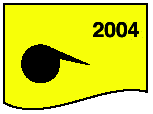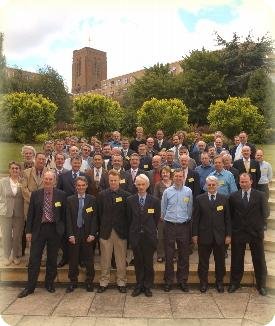

![]()
|
|
|
|
|
 |
The 15th International CCL-Conference23rd to 26th June 2004 at the University of Surrey Guildford UK
|
Scientific programme
Thursday - Technology and change
Session 1: The shape of things to come - the Laboratory Information System (LIS) and new technology
Chairman: Prof Oren Zinder (Israel)
The IBM Keynote Lecture: Dr Dave Watson (England)
IT - A Mature Industry - No Way! The IT industry has a tremendous record of innovation and just when you thought it could be slowing down there is a massive injection of new ideas and technology - this keynote lecture will concentrate on what is coming in the IT world and how it will relate to clinical laboratories
- Web services and their potential application in the clinical laboratory - Dr Michael Pietsch (Germany)
- The challenge of LIS support for the Genetics Service in England - Mr Andrew Deveraux (England)
Session 2: The bigger picture - the LIS and the national perspective
Chairman: Dr Rick Jones (England)
- The National Programme for Information Technology (NPfIT) in the NHS - Julie Clifton (England)
- The implications of the NPfIT for the clinical laboratory - Mr Don Saum (England)
- The impact of clinical laboratory amalgamation on the LIS - Mr Bodo Eing (Germany)
Session 3: Safety first - assuring the quality of a LIS
Chairman: Dr Helge Erik Solberg (Norway)
- Quality assurance documentation in the clinical laboratory - Mr Chris Charlton (England)
- Validation of LIS software: the NORDTEST approach - Mr Carl Erik Torp (Denmark)
- Safety critical software - Prof Les Hatton (England)
Friday - The clinical perspective
Session 4: Adding value - intelligent systems and the LIS
Chairman: Dr Bernhard Pohl (Germany)
The Technidata Keynote Lecture: Dr Glenn Edwards (Australia)
Delivering better healthcare with laboratory decision support: what do doctors really want - and how do we deliver?
- Integrating the j.MD expert system with a commercial LIS - Dr Roland Schnepel (Germany)
- Round table discussion: the role of intelligence in laboratory information systems (International expert panel)
Session 5: Using the results - the LIS and the clinician
Chairman: Dr Jose M Queralto (Spain)
- Overview and current issues - Dr Jonathan Kay (England)
- Education and training in the use of LIS in the medical setting - Prof Oren Zinder (Israel)
- A view from General Practice (England)
Session 6: Making the connections - LIS standards and implementation
Chairman: Dr Torgny Groth (Sweden)
- The IHE initiative and the clinical laboratory - Mr François Macary (France)
- Edifact messages for transmitting laboratory results to GPs - Dr Rick Jones (England)
- Update on standards for point-of-care testing equipment - Dr Jan Dols (Netherlands)
Saturday - Wider issues
Session 7: Wider issues - opportunities for the current and future LIS
Chairman: Dr Desmond Kenny (Ireland) and Dr Jan Dols (Netherlands)
- Lab Tests Online - bringing pathology laboratories closer to the patient - Dr Stephen Halloran )
- Practical experience with implementing web-based order communications - Mr Kevin Watts (England)
- Hand-held devices for collecting laboratory requests - Mr Peter Wognum (England)
- Round table discussion: the future of laboratory information systems - Dr Jonathan Kay (England)
 |
The 15th International CCL-Conference23rd to 26th June 2004 at the University of Surrey Guildford UK
|
Conference evaluation
 |
Some of the 80 delegates from 12 countries The CCL2004 conference had 80 registered delegates from 12 countries and 15 local attendees, mainly from the University of Surrey. We have received very positive feedback, both spoken and in e-mails, and it certainly seems that the conference struck the right balance and was enjoyed by all. Typical comments have been: An excellent event that I personally found most enlightening. It was a pleasure to attend such an inspiring conference. Right size, good level of discussion and ... holding it in an academic environment was good - much preferable to hotels which never seem that serious. Your challenge is to make potential delegates understand how good this conference really is. Can you thank everyone that was involved in the organisation. Everything went extremely well from our viewpoint and we gained a lot from the event. (from an exhibitor). |
My 'special' memories of CCL2004 in Guildford include: several outstanding
lectures that drew prolonged applause from the audience, lively discussion
sessions with a very informed and participative audience and quality time for
networking. There was a marked 'buzz' in the concourse during the breaks and I
know that the exhibitors appreciated having their stands close to the
refreshments and the action.
(Dr Ian Wells,
Conference organization).
|